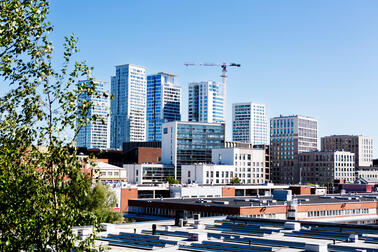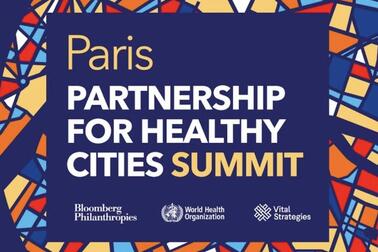
The conclusion of the Review is that Helsinki is a pioneer in several areas of implementing sustainable development and well on its way in realising many sustainable development goals, and has done long-term work on many goals since the publication of the first local sustainable development agenda in 2002. However, there are still challenges. For example, per capita consumption-based carbon emissions and natural resource consumption are at a high and unsustainable level. Many sustainability themes, such as reducing inequality and securing ecological sustainability, develop slowly and require continuous long-term work.
Examining sustainability on a broad scale requires further efforts and giving thought to what the change in sustainability thinking means for the City, how conflicting sustainability goals could be reconciled and what kinds of long-term and medium-term objectives the City of Helsinki should have. The most important measures related to promoting sustainable development goals in Helsinki have to do with land use and construction, promoting welfare and health, education, vitality, procurements, and employment.
Sustainability must be promoted in a cross-cutting manner within the City organisation and between the City’s different programmes. In particular, the conflict between the city’s growth and protecting nature values and the local nature has become increasingly apparent and calls for reconciliation.
The new Review highlights risks related to the City’s operations, safety and preparedness more prominently than the previous Reviews from 2019 and 2021.
Successes in different areas
There have been successes in the implementation of sustainable development in all of the City’s divisions.
The KETTU model for a sustainable future has been integrated as part of early childhood education, and the City is developing its sustainable development learning path. Promotion of cultural equality has been highlighted as an important focus throughout the City’s cultural sector – Helsinki has plenty of cultural services that take diverse population groups into account in different areas. The City’s other functions are also carrying out active work for non-discrimination and equality.
The production of renewable energy has increased, and the energy efficiency of construction and air quality have improved in Helsinki. The Hanasaari coal power plant was closed in the spring of 2023. The number of nature conservation areas has increased from 2021.
The City’s suburban regeneration model aims to reduce differences between areas, improves the comfort and attractiveness of residential areas and enables high-quality supplementary construction.
Mental health service chains, as well as the learning of emotional and interaction skills among comprehensive school pupils, have been developed, and investments have been made to support physical activity and hobbies. For example, new operating models and services have been introduced to support physical activity among the elderly.
Development targets
However, there are also plenty of sustainability challenges in addition to successes. Of particular note are the rate of reducing greenhouse gas emissions, preparing for extreme weather phenomena intensified by climate change, securing biodiversity, the development of inequality and segregation, the mental wellbeing and loneliness of Helsinki residents and young people in particular, and the availability of labour.
“Helsinki is strongly committed to sustainability – including social, ecological, economic and cultural sustainability. For each of these, we want to take concrete action to demonstrate our will and ambition to do better. The majority of the goals of Agenda 2030 require strong local implementation in particular. Cities have a duty to spur the national level and demand ambitious and unrelenting action by setting an example,” comments Mayor of Helsinki Juhana Vartiainen.
“The world has seemed to be exceptionally unstable in recent years. Despite this, and indeed precisely because of this, we must continue to pursue and implement sustainable development measures with determination. Our direction must be clear. Sustainable cities and communities play a key role in promoting peace, prosperity and stability at the local level. In addition to ecological issues, a sustainable future is also fundamentally linked to ensuring welfare and social sustainability. Above all, we must nurture the wellbeing of our children and young people through concrete actions that give hope for the future. The majority of Helsinki residents find their quality of life and health to be good, but there have been particular concerns in recent years regarding differences in wellbeing between population groups and the mental wellbeing of children and young people. Therefore, special attention must be paid to combating regional segregation and promoting the wellbeing of children and young people in Helsinki.”
“The newly published Review is a tool to monitor and analyse our progress in relation to the global goals and our own City Strategy. It will help us develop Helsinki’s sustainable development indicators and knowledge-based management,” explains Mayor Vartiainen.
Sustainable development as part of management and the planning of operations
The objective set for the current council term, ending in 2025, is for sustainable development to be integrated as part of the City of Helsinki’s management, operational and financial planning and other core processes. Sustainable development budgeting will also be developed further.
The City aims to identify longer-term challenges and objectives better, strengthen the role of core processes and increase the impact of city-level programmes in the realisation of sustainable development goals.
Understanding and know-how related to sustainability issues will be strengthened in the City organisation, e.g. through staff training programmes, and the City’s enterprises and the City group will be supported in sustainable development work. Helsinki will also continue and strengthen its international and national partnerships related to sustainable development. Helsinki is aiming to actively learn from other cities’ best practices while also sharing its own sustainability know-how and thus supporting other cities’ work internationally and nationally.
In 2015, the UN member countries agreed upon a set of goals and an agenda for sustainable development. The Agenda 2030 action plan aims for sustainable development that affords equal consideration to the environment, economy and people. The City of Helsinki’s Voluntary Local Review entitled From Agenda to Action 2023 will be submitted to the UN in July.
The From Agenda to Action 2023 Review has been published online on the Sustainable Helsinki website at sustainability.hel.fi. The website also features news articles related to sustainability.


